Filter by
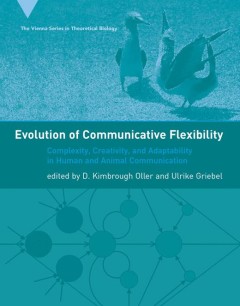
Evolution of communicative flexibility : Complexity, Creativity, and Adaptabi…
Experts investigate communicative flexibility (in both form and usage of signals) as the foundation of the evolution of complex communication systems, including human language.
- Edition
- -
- ISBN/ISSN
- -
- Collation
- 1 online resource (x, 356 pages) :
- Series Title
- -
- Call Number
- -
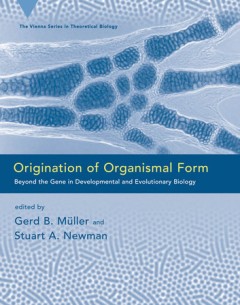
Origination of organismal form :beyond the gene in developmental and evolutio…
"A Bradford book."The field of evolutionary biology arose from the desire to understand the origin and diversity of biological forms. In recent years, however, evolutionary genetics, with its focus on the modification and inheritance of presumed genetic programs, has all but overwhelmed other aspects of evolutionary biology. This has led to the neglect of the study of the generative origins of …
- Edition
- -
- ISBN/ISSN
- 9780262280327
- Collation
- 1 online resource (vi, 332 pages) :illustrations.
- Series Title
- -
- Call Number
- -
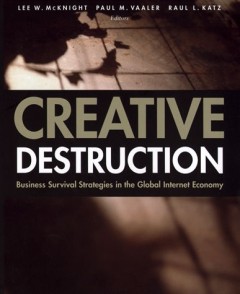
Creative Destruction: Business Survival Strategies in the Global Internet Eco…
A collection of 12 papers which "grew out of a March 1999 symposium held at the Fletcher School of Law and Diplomacy, Tufts University. "Creative Destruction -- or Just Destruction? Telecoms in Transition: Survival and Success in the Global Internet Economy" was co-sponsored by the Fletcher School's Hitachi Center for Technology and International Affairs, the Fletcher School's Edward R. Murrow …
- Edition
- -
- ISBN/ISSN
- 9780262276788
- Collation
- 1 online resource (xii, 289 pages) :illustrations
- Series Title
- -
- Call Number
- -
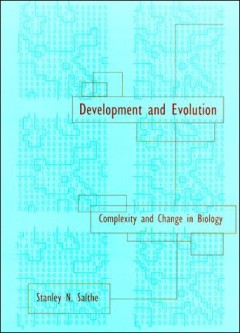
Development and evolution: complexity and change in biology
Development and Evolution surveys and illuminates the key themes of rapidly changing fields and areas of controversy that are redefining the theory and philosophy of biology. It continues Stanley Salthe's investigation of evolutionary theory, begun in his influential book Evolving Hierarchical Systems, while negating the implicit philosophical mechanisms of much of that work. Here Salthe attemp…
- Edition
- -
- ISBN/ISSN
- 9780262282895
- Collation
- 1 online resource (xiv, 357 pages) :illustrations
- Series Title
- -
- Call Number
- -
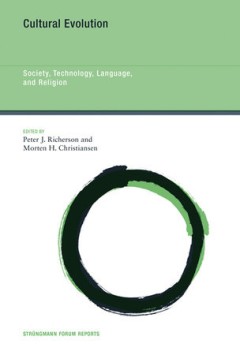
Cultural evolution : society, technology, language, and religion
Over the past few decades, a growing body of research has emerged from a variety of disciplines to highlight the importance of cultural evolution in understanding human behavior. Wider application of these insights, however, has been hampered by traditional disciplinary boundaries. To remedy this, in this volume leading researchers from theoretical biology, developmental and cognitive psycholog…
- Edition
- -
- ISBN/ISSN
- 9781461950356
- Collation
- 1 online resource (xi, 485 pages) :illustrations.
- Series Title
- -
- Call Number
- -
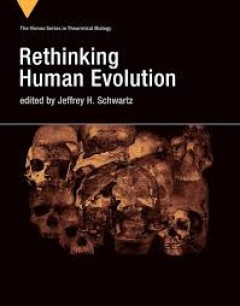
Rethinking Human Evolution
Contributors from a range of disciplines consider the disconnect between human evolutionary studies and the rest of evolutionary biology.The study of human evolution often seems to rely on scenarios and received wisdom rather than theory and methodology, with each new fossil or molecular analysis interpreted as supporting evidence for the presumed lineage of human ancestry. We might wonder why …
- Edition
- -
- ISBN/ISSN
- 9780262344180
- Collation
- 1 online resource.
- Series Title
- -
- Call Number
- -
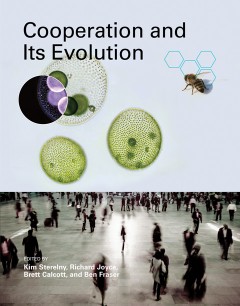
Cooperation and its evolution
Essays from a range of disciplinary perspectives show the central role that cooperation plays in structuring our world. This collection reports on the latest research on an increasingly pivotal issue for evolutionary biology: cooperation. The chapters are written from a variety of disciplinary perspectives and utilize research tools that range from empirical survey to conceptual modeling, re…
- Edition
- -
- ISBN/ISSN
- 9780262313032
- Collation
- 1 online resource (vii, 577 pages) :illustrations.
- Series Title
- -
- Call Number
- -
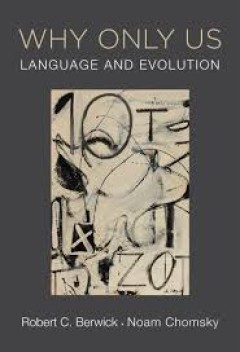
Why only us language and evolution
"We are born crying, but those cries signal the first stirring of language. Within a year or so, infants master the sound system of their language; a few years after that, they are engaging in conversations. This remarkable, species-specific ability to acquire any human language--'the language faculty'--raises important biological questions about language, including how it has evolved. This boo…
- Edition
- -
- ISBN/ISSN
- 9780262333351
- Collation
- 1 online resource (215 pages, 4 unnumbered pages of plates) :illustrations (some color)
- Series Title
- -
- Call Number
- -
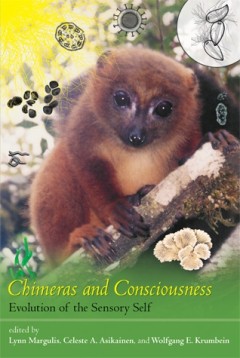
Chimeras and Consciousness: Evolution of the Sensory Self
This title begins the inquiry into the evolution of the collective sensitivities of life. Scientist-scholars from a range of fields - including biochemistry, cell biology, history of science, family therapy, genetics, microbial ecology, and primatology - trace the emergence and evolution of consciousness.
- Edition
- -
- ISBN/ISSN
- -
- Collation
- 1 online resource (xviii, 321 pages, 8 unnumbered pages of plates
- Series Title
- -
- Call Number
- -

Reforming Rules and Regulations: Laws, Institutions, and Implementation
Contributors examine how regulatory & institutional environments affect the functioning of markets & propose reforms, arguing that quantitative methods should be used to guide policy & to reform rules & regulations. These essays offer methodologies for the assessment of policy alternatives.OCLC-licensed vendor bibliographic record.
- Edition
- -
- ISBN/ISSN
- 9780262289412
- Collation
- 1 online resource (x, 316 pages) :illustrations, maps.
- Series Title
- -
- Call Number
- -
 Computer Science, Information & General Works
Computer Science, Information & General Works  Philosophy & Psychology
Philosophy & Psychology  Religion
Religion  Social Sciences
Social Sciences  Language
Language  Pure Science
Pure Science  Applied Sciences
Applied Sciences  Art & Recreation
Art & Recreation  Literature
Literature  History & Geography
History & Geography